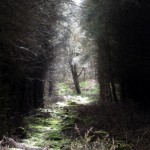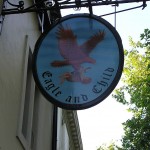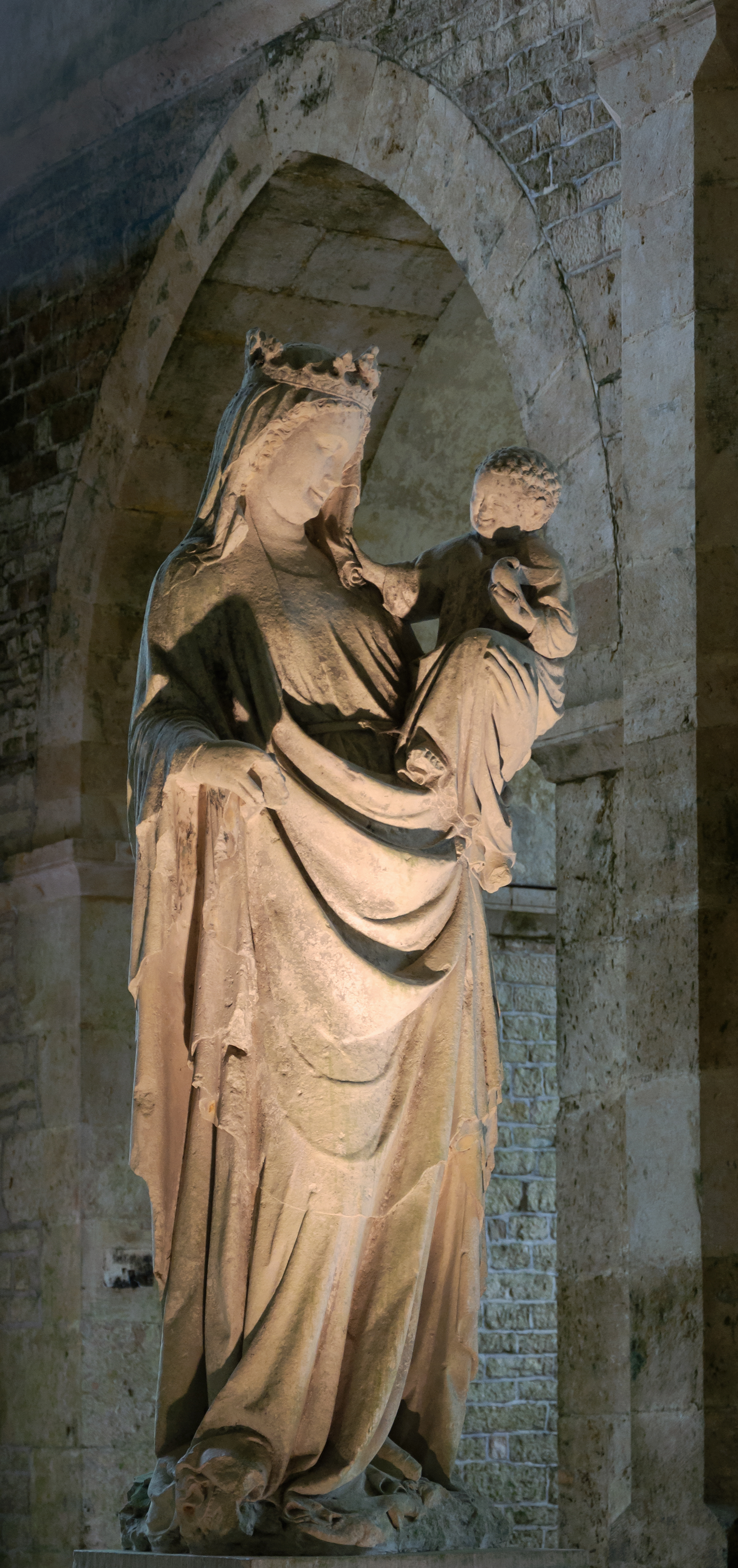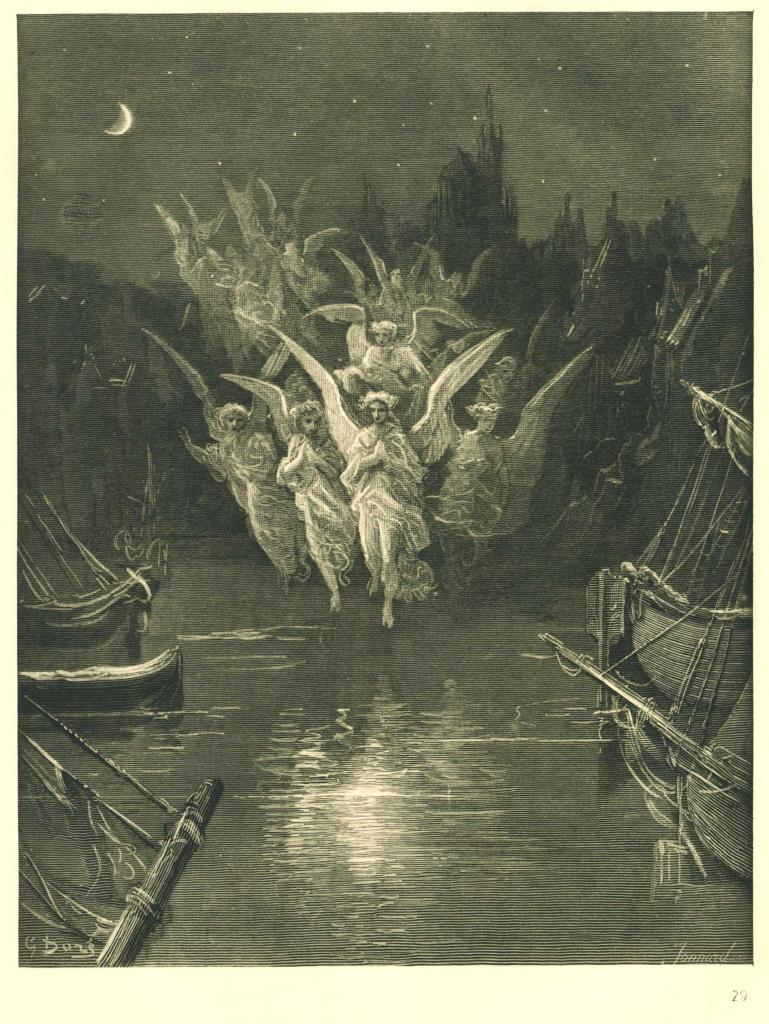David Russell Mosley
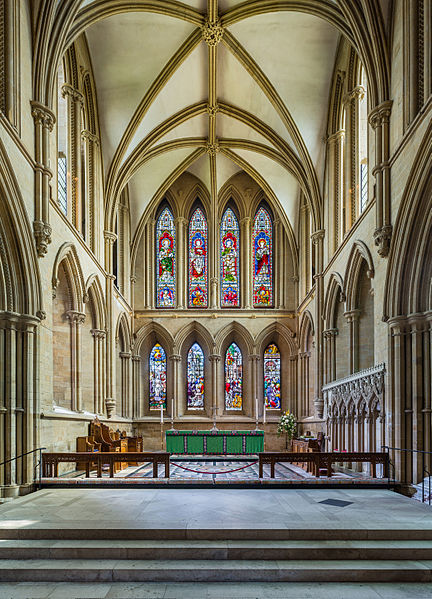
Photo by DAVID ILIFF. License: CC-BY-SA 3.0
Ordinary Time
1 September 2016
The Edge of Elfland
Hudson, New Hampshire
Dear Readers,
The other day I wrote to you concerning some initial reflections on the relationship between Elfland, as I often talk and write about it, and Pope Francis’ understanding of creation in his Encyclical Laudato Si’. In that letter I mentioned that I would turn to the Eucharist in a second letter and so today, I sit down to write you that letter.
In the final chapter of Laudato Si’, which Pope Francis entitles “Ecological Education and Spirituality,” the good pontiff writes about new ways of living in and seeing creation. I touched on many of those in my last letter. After a section on Civic and Political Love, the Pope turns to the sacraments. This is, I believe, a natural turn. As we progress deeper into our understanding of reality and the relations that subsist within it, it is natural that we would turn to and encounter the sacraments.
Pope Francis writes:
“The Sacraments are a privileged way in which nature is taken up by God to become a means of mediating supernatural life. Through our worship of God, we are invited to embrace the world on a different plane. Water, oil, fire and colors are taken up in all their symbolic power and incorporated in our act of praise.”1
I am, perhaps as always, reminded of a line from Tolkien which I quoted in my last letter. I won’t repeat it verbatim now, but in it, Tolkien reminds us that all things can be found in Elfland, trees, rocks, water, bread, wine. These physical realities get bound up with divinity in a particular way when we encounter them in the Sacraments. Water, which we commonly use for bathing, becomes the means by which God cleanses us from sin. A contaminant which normally no amount of water can cleanse from you, in the act of baptism, is washed away and is so in part by the presence of God in the baptismal waters. Oil too, a thing which once was used as a beautifier, and still is for those familiar with things like beard oil or the many uses of essential oils, becomes a means of sealing us with God, of anointing us, setting us apart. “Encountering God,” as Pope Francis writes, “does not mean fleeing from this world, turning our back on nature.”2 Rather, as Pope Francis reminds us:
“For Christians, all creatures of the material universe find their true meaning in the incarnate Word, for the Son of God has incorporated in his person part of the material world, planting in it a seed of definitive transformation.”3
This turn to the Incarnation is quite intentional, for, in this life, after the ascension of Christ and the descent of the Spirit, we now encounter Christ physically in the Eucharist, that, in many ways, preeminent sacrament. It is preeminent both because it is the sacrament in which we meet Jesus in a way in which we do not meet him elsewhere. It is also preeminent in its gratuity for one does not need it for salvation (for that only baptism is required) and yet the Christian life is more difficult without encountering Christ in the Eucharist in some way. For Pope Francis, the Eucharist is the ultimate exaltation of creation. He writes:
“It is in the Eucharist that all that has been created finds its greatest exaltation. Grace, which tends to manifest itself tangibly, found unsurpassable expression when God himself became man and gave himself as food for his creatures..”4
First Christ binds creation to himself by taking on our nature. Now he binds it to himself anew by binding his divine and human natures to bread and wine in the Eucharist. Now from these humble elements, all of creation spins out as if spokes from a center. It is cosmic, says Pope Francis, quoting Pope St. John Paul II:
“Indeed the Eucharist is itself an act of cosmic love: ‘Yes, cosmic! Because even when celebrated on the humble altar of a country church, the Eucharist is always in some way celebrated on the altar of the world” [Encyclical Letter Ecclesia de Eucharistia (17 April 2003), 8: AAS 95 (2003), 438].”5
I love this image. It’s something I loved about going in and wandering about the medieval churches in England in small, rural communities. Here in this church, which survived Henry VIII, the Eucharist is celebrated, sometimes by only a small handful of the faithful. Yet this small act, like the ones in which I participated when my son’s immune system was too compromised for all of us to go to church, involving so few people is not simply being celebrated in that small church, on that humble altar, but is being celebrated cosmically as well as it foretells the future wedding feast of the Lamb. Indeed, in this moment, really in the liturgy in general, time and the eternal, heaven and earth meet and commingle. We are given a foretaste of our deification in those moments. Pope Francis tells us:
“The Eucharist joins heaven and earth; it embraces and penetrates all creation. The world which came forth from God’s hands returns to him in blessed and undivided adoration: in the bread of the Eucharist, ‘creation is projected towards divinization, towards the holy wedding feast, towards unification with the Creator himself’ [Benedict XVI, Homily for the Mass of Corpus Domini (15 June 2006): AAS 98 (2006), 513]. Thus, the Eucharist is also a source of light and motivation for our concerns for the environment, directing us to be stewards of all creation.”6
Because of the cosmic implications of the Eucharist, however humbly celebrated, because the Eucharist entails the joining together of heaven and earth, all creation participates in its celebration. Because of this, we must, therefore, see it as source for our concerns for creation. On the one hand this really ought to be obvious. The more we despoil creation, the fewer fields there will be for wheat and grape vines and thus the elements of the Eucharist will become more scarce, which is not good. It is not good not only because these are the elements necessary for the celebration of the Eucharist, but because, as Thomas Aquinas reminds us, they are things by which men are commonly fed. Bread and wine ought to be at the service of men and women everywhere and their loss on the altar is just as bad as their loss in the hands of the poor.
Again, I am brought back to Elfland. In that perilous realm we can begin to see things for what they truly are. Evil is unveiled and shown in its grotesque and perverse form. Yet beauty too is unveiled. The poor man’s face, as Pope Francis writes, can unfold “mystical meaning.”7 Trees show their kinship to the Tree of Life as well as to the hallowed rood on which Christ was crucified. Bread and wine become flesh and blood.
Pope Francis’ explanation of the place of the sacraments and the Eucharist in particular in creation betrays a kind of sacramental ontology. Creation itself is a sign that signifies and participates in that of which it is a sign, namely the Holy Trinity. We know this in part by virtue of nature itself, but the book of Creation is not enough to tell us about who God is. Thus we have the Eucharist, and the other sacraments. Here heaven and earth reveal their kinship, that heaven upholds earth, that grace perfects nature. So the particular instances of the sacraments show us that creation itself is sacramental. As I said in my last, while Pope Francis makes no reference to Elfland, he clearly walks in its woods.
Sincerely,
David
1 6.235
2 6.235
3 6.235
4 6.236
5 6.236
6 6.236
7 6.233

